The transition to cleaner modes of transport is of primary importance to meet the challenges of global warming. Existing technological capabilities and policy frameworks have increased emphasis, globally, on using electric vehicles (EVs) in the transport sector. Most countries have aligned their policies to incentivise and provide infrastructural support to develop EVs and enhance consumer acceptance. While some developed countries have followed a more comprehensive approach by including End of Life (EoL) batteries in their policy framework, many are yet to initiate clear guidelines. Recycling EoL batteries benefits the environment and human health, and unscientific management of EoL batteries may have dangerous implications. This Policy Brief explores current technological and policy opportunities for, and barriers to improving circularity in EV battery systems. The brief recommends developing a sustainable global framework in this direction.
Building a Resilient EV Battery Value Chain
Perminder Jit Kaur (DST’s Centre for Policy Research), Pradeep Karuturi (Centre for Clean Mobility), Rohan Malhotra (DST’s Centre for Policy Research)
This Policy Brief was first published in https://t20ind.org
Abstract
Authors
Perminder Jit Kaur (DST’s Centre for Policy Research), Pradeep Karuturi (Centre for Clean Mobility), Rohan Malhotra (DST’s Centre for Policy Research)
Latest Policy Briefs
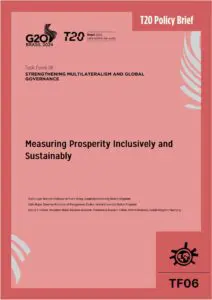
This Policy Brief advocates a thorough shift for the G20 from reliance on GDP as an economic yardstick of national performance and conventional measures of corporate profits as a ...
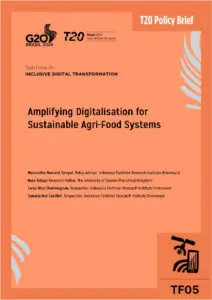
Ensuring food security emerges as a critical global imperative, particularly in the present and future uncertain geopolitical and economic circumstances. The contemporary agri-food systems heavily depend on international trade, ...
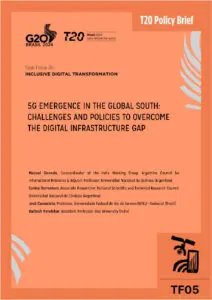
5G Emergence In The Global South: Challenges And Policies To Overcome The Digital Infrastructure Gap
Since 2016 G20 has focused on digital connectivity as an economic prosperity driver and the overcoming of multiple social inequalities. Currently, 5G is playing a prominent role in foreign ...
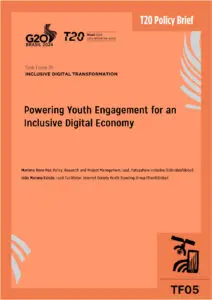
This policy brief advocates for youth meaningful engagement in digital economy policy and leverages youth’s perspectives on how to ensure that new digital technologies advance the Sustainable Development Goals ...
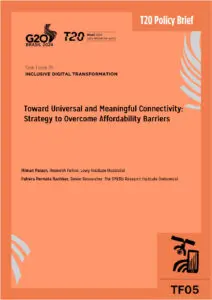
The challenge of digital affordability persists, with approximately 2.6 billion people, one-third of the global population, still lacking connectivity. While smartphones and broadband access are becoming more affordable in ...
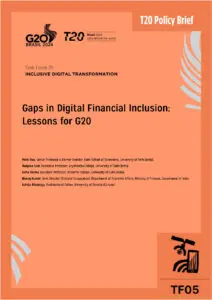
This policy brief aims to construct and analyze indices for access and usage dimensions of digital financial inclusion (DFI) in G20 economies, incorporating demographic characteristics such as gender, age, ...



